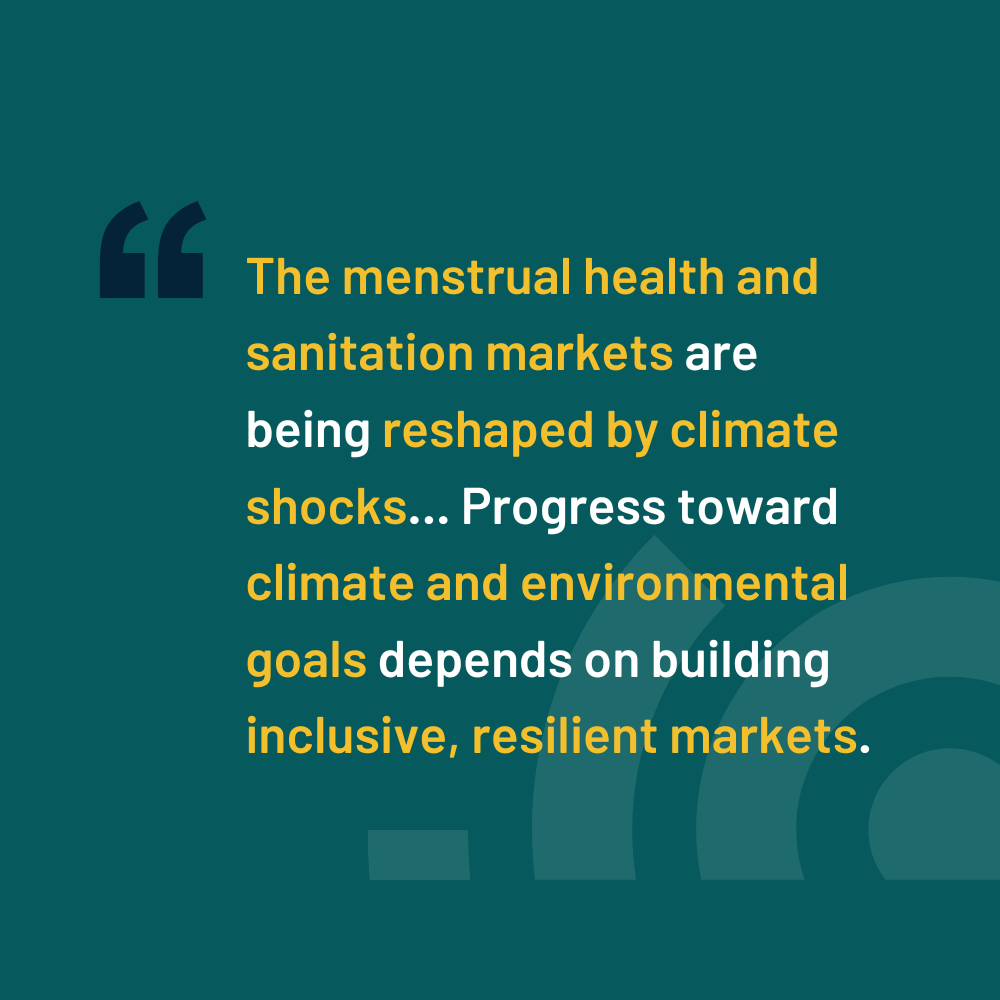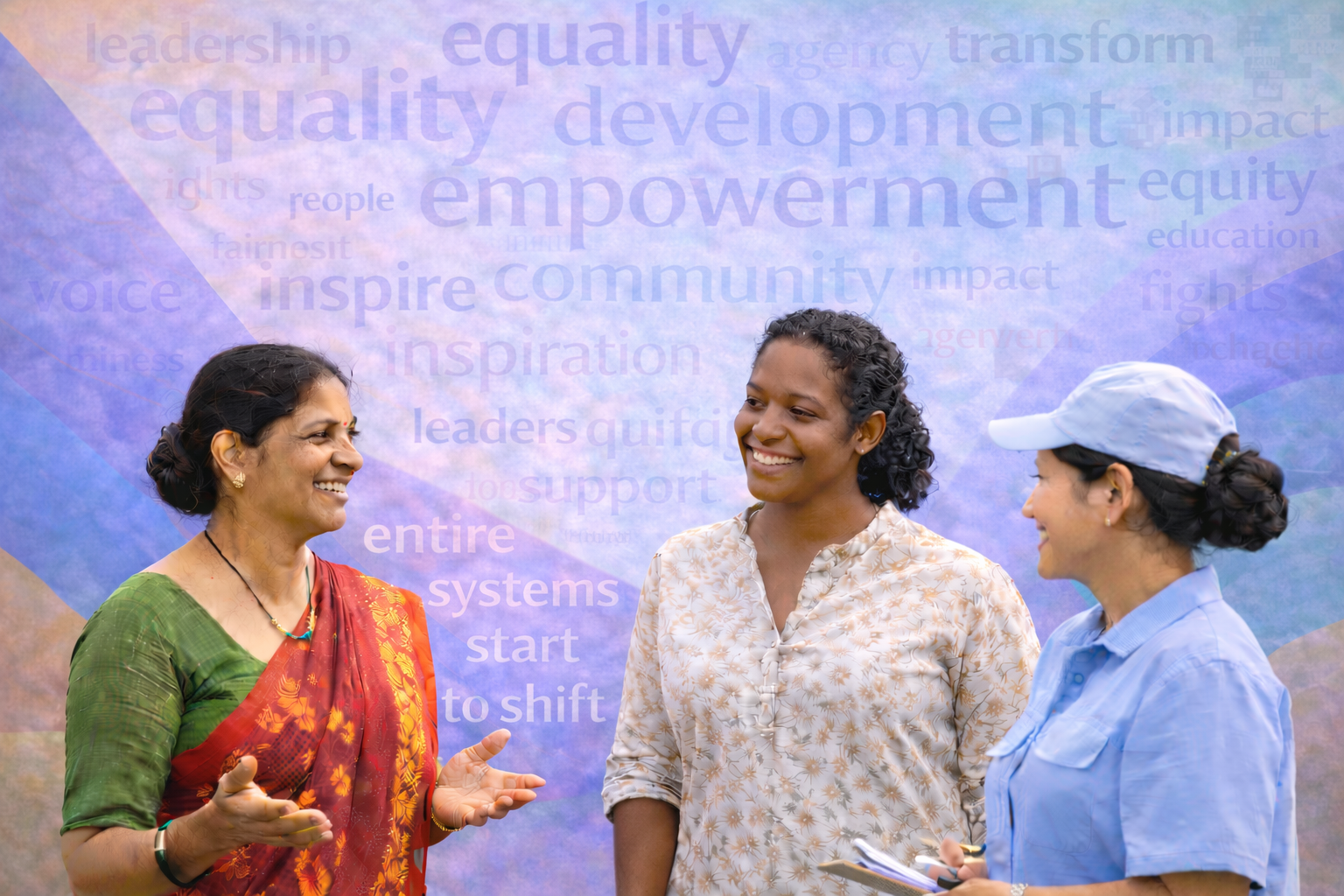
Global leaders welcome the Sanitation and Hygiene Fund as key to increasing investment
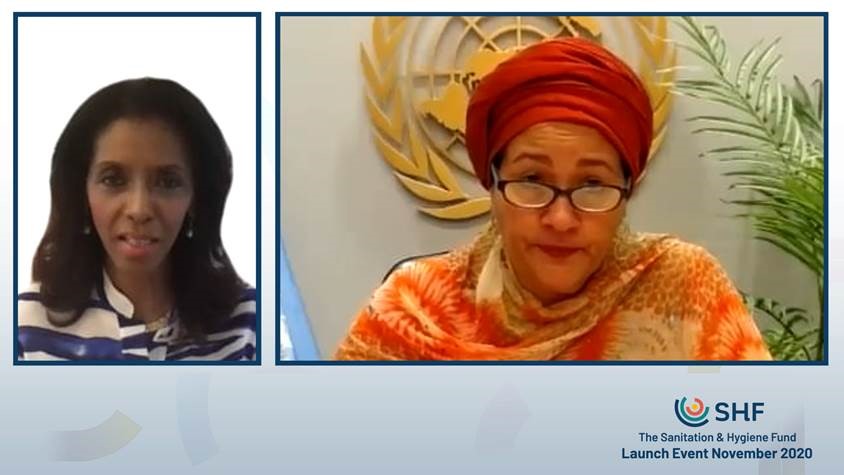
GENEVA, 17 November – The Sanitation and Hygiene Fund will be critical to dramatically scale up investments to reach everyone with sanitation services, United Nations Deputy Secretary-General has said as the new financial mechanism to drive billions of dollars into the sanitation sector was launched today.
Speaking at the launch of the new Sanitation and Hygiene Fund, Ms Amina J. Mohammed described safe sanitation and hygiene as “critical to the response that we want to see, first, because it is about human dignity. Second, it is a health issue.”
The coronavirus pandemic has made clear the fundamental role that sanitation and hygiene play in stopping the spread of disease. But it has also exposed the vast inequities that exist in access to sanitation, hygiene and menstrual health.
The Deputy Secretary-General emphasized that “basic hygiene of washing your hands and being able to have a toilet that is accessible is key [to enabling healthy communities] in the longer term.”
The online launch event was moderated by international broadcaster Ms Zeinab Badawi, and is available on the SHF website and its YouTube channel.
The Sanitation and Hygiene Fund is seeking US$2 billion over the coming five years to support countries in bringing sanitation, hygiene, and menstrual health to all.
“We know that money, well utilized, has the ability to drive positive and lasting change,” says Dominic O’Neill, Executive Director of the Sanitation and Hygiene Fund. “This is not only a struggle to improve health; it is a fight for respect and basic human rights and an end to stigma.”
Also participating in the launch programme was Vice President Yemi Osinbajo of Nigeria, who said, “The Sanitation and Hygiene Fund is in many senses a lifesaver. One of the features that I particularly like is that it is tied to measurable performance.”
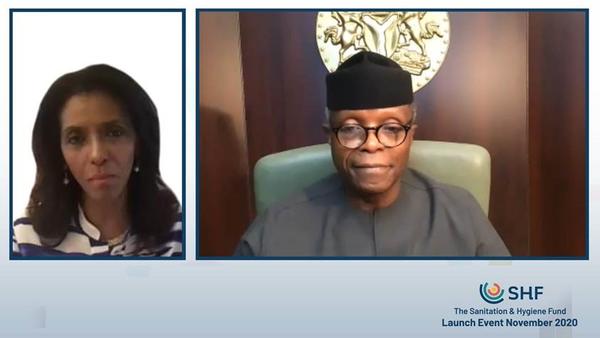
Ms Henrietta Fore, Executive Director of UNICEF, called sanitation and hygiene “a great equalizer for children.”
“During a lockdown, how do you cope with the fact that your household does not have a toilet? This is particularly difficult for girls and women. If everyone had access to sanitation and hygiene in households, in their schools, in their health facilities and communities, it would make an enormous difference in our world,” she said.
“Good sanitation has to be a public good. Governments have to own the fact that sanitation is their problem to solve, and that they have ways to solve it,” Ms Fore added.
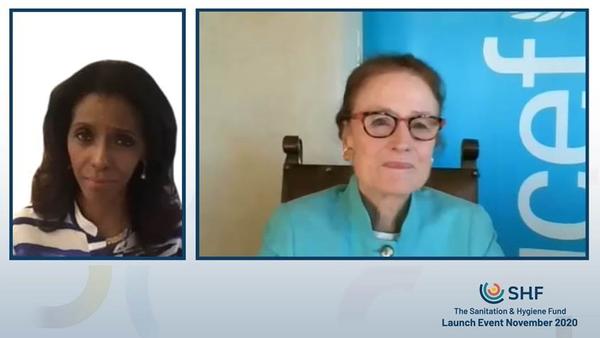
Currently, half the world’s population does not have access to safely managed sanitation. 620 million children attend schools that do not have toilets. 1 in 3 schools do not have even basic sanitation and hygiene services, and 1 in 5 healthcare facilities have no sanitation services whatsoever. The estimated cost of lack of sanitation and hygiene is US$ 222 billion per year in lost productivity, increased health expenditures, and economic output.
The Sanitation and Hygiene Fund sits within the United Nations Office for Project Services (UNOPS). Ms Grete Faremo, Executive Director of UNOPS, added that proper sanitation is at the core of development to any community, family or individual. “UNOPS and its infrastructure work very often see that schooling comes down to proper sanitation facilities.”
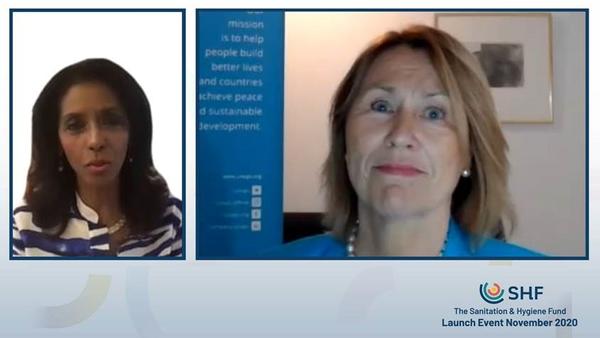
However, at current rates of progress, SDG 6.2 – sanitation and hygiene for all – will not be achieved until the 22nd century. This is primarily due to underinvestment over the past several decades. This has had a profound negative impact on health, education and economic outcomes for countries and communities. Large-scale investments in sanitation and hygiene are needed to reverse this situation and instigate the changes that are needed for widespread and lasting impact.
Welcoming the Sanitation and Hygiene Fund as “an important mechanism to increase and catalyze national investment,” Dr Zsuzsanna Jakab, Deputy Director-General of the World Health Organization, said that investment in sanitation and hygiene is cost-effective. “The economic benefits of sanitation are about five times the cost, and the cost of inaction is far greater.”
“In a world that is experiencing deep social and economic upheaval in the face of COVID-19, the launch of the Sanitation and Hygiene Fund is a hopeful sign. There is an urgent need to do more. This fund will bring much-needed funding for sanitation, hygiene, and menstrual hygiene management,” said Mr Gilbert Houngbo, Chair of UN-Water and President of the International Fund for Agricultural Development.
The online event also included interventions by Ms Petronila Musonye of Kenya Water for Health Organization and Ms Abenmire Adi, Gender Rights and Sanitation Advocate for Cross River State, Nigeria, speaking on behalf of civil society.
The Sanitation and Hygiene Fund provides catalytic funding to countries with the heaviest burden and least ability to respond, focusing on four strategic objectives: expanding household sanitation; ensuring menstrual health and hygiene; providing sanitation and hygiene in schools and health care facilities; and supporting innovative sanitation solutions.
About the Sanitation and Hygiene Fund
The Sanitation and Hygiene Fund is a global financing mechanism to support country-driven programmes to bring sanitation and hygiene to all. It is seeking US$2 billion over the coming five years to provide a 21st-century solution to the decades-old crisis on sanitation, hygiene and menstrual health. Investing in a public-private approach, the fund aims to capitalize on the strengths of its in-country and global partners.
For more information:
Mr Hiroyuki Saito
+41 79 684 35 98


